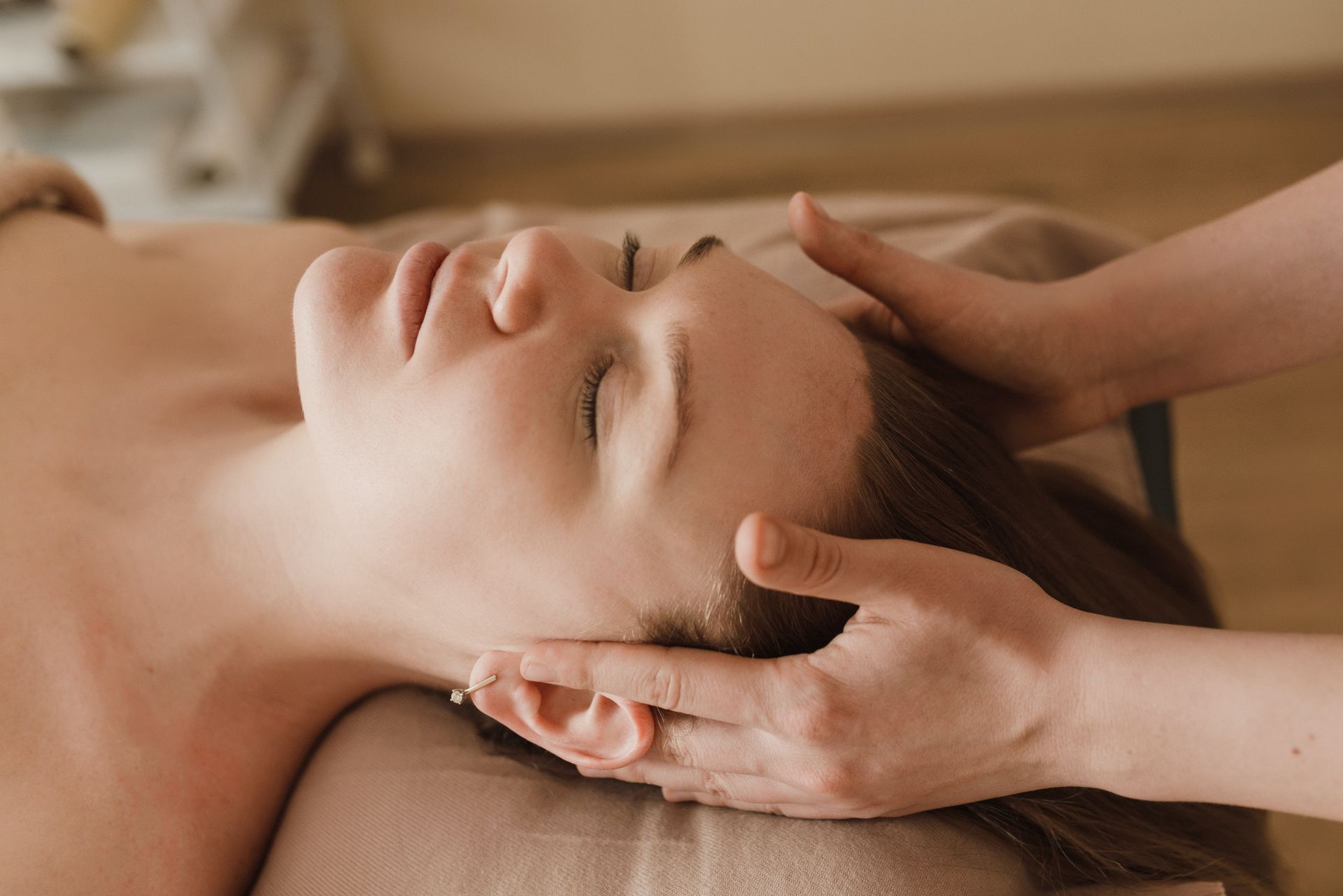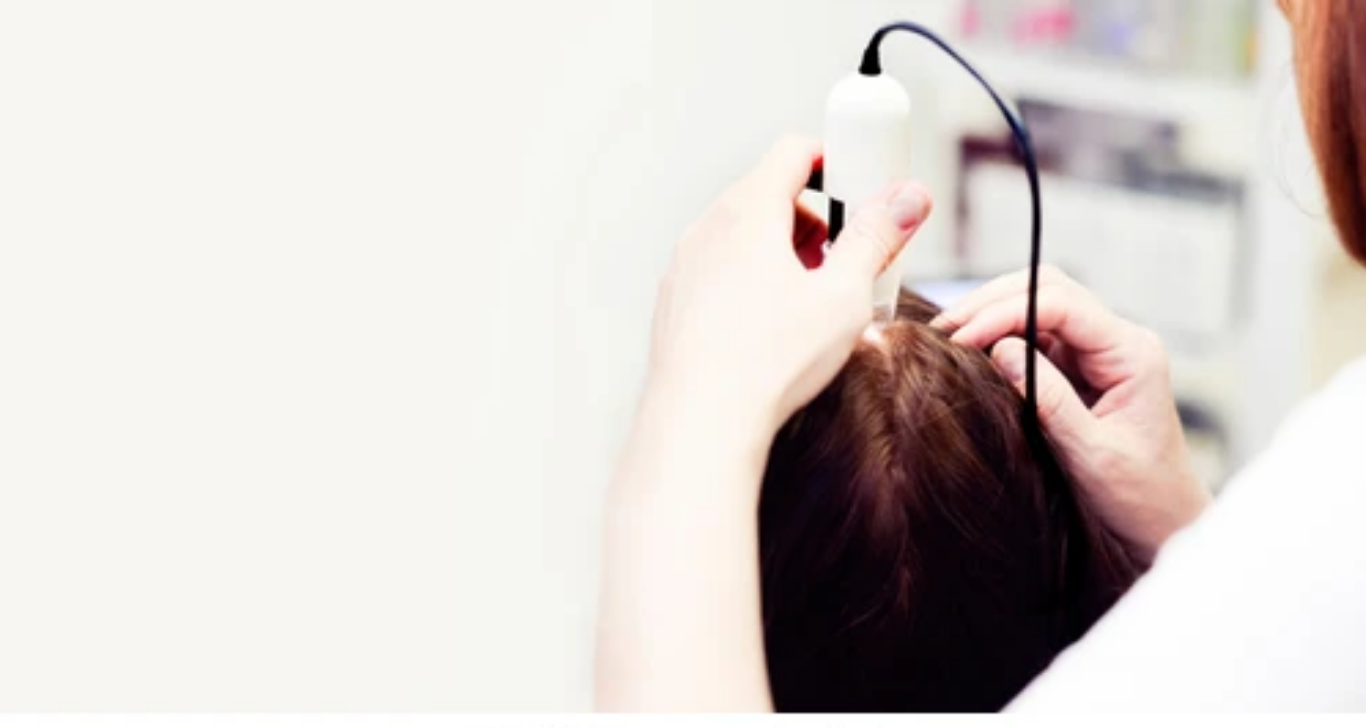Trichologist Birmingham Blog
Hair Loss Myths Debunked: What Trichologists in Birmingham Want You to Know
Separating Fact from Fiction: Unveiling the Truth About Hair Loss and Restoration
We often encounter various myths and misconceptions about hair loss in our quest for healthy and beautiful hair. These myths can be misleading and prevent us from seeking proper treatment and care. As trichologists in Birmingham, we are here to debunk these myths and provide the facts you need to understand hair loss better. This comprehensive guide will address common hair loss myths and offer expert insights to help you separate fact from fiction.
Myth #1: Wearing hats or using hair products causes hair loss
One of the most persistent myths surrounding hair loss is the belief that wearing hats or using hair products can lead to hair loss. However, it's essential to separate fact from fiction. The truth is that hats and hair products do not directly cause hair loss. Genetic factors, hormonal imbalances, medical conditions, and lifestyle factors such as stress and nutrition primarily influence hair loss.
- Wearing Hats: Wearing a hat does not suffocate the hair follicles or restrict blood flow to the scalp, as some myths suggest. Caps can protect from the sun's harmful UV rays, which can damage the hair. Choosing hats that fit correctly and are made of breathable materials is essential to allow proper airflow to the scalp.
- Hair Products: While certain products may contribute to hair damage or breakage, they do not cause permanent hair loss. Some styling products like gels, hairsprays, or excessive heat styling can weaken the hair shaft and make it more prone to breakage. However, once the hair is properly washed and cared for, it can regain strength and integrity. It's advisable to use high-quality hair products and avoid excessive heat and chemical treatments to maintain healthy hair.
Myth #2: Only men experience hair loss
Another common myth surrounding hair loss is the misconception that it only affects men. While it is true that hair loss is more prevalent in men, women can also experience hair loss. Studies suggest that up to 40% of women may experience noticeable hair loss by age 40. Hair loss in women can be attributed to various factors, including hormonal changes, pregnancy, menopause, and underlying medical conditions.
- Female Pattern Hair Loss: Women can experience a specific pattern of hair loss known as female pattern hair loss or androgenetic alopecia. It typically involves thinning the hair on the crown of the head and widening the center part. A combination of genetic and hormonal factors influences female pattern hair loss. Women must understand that hair loss is not solely a male issue and that seeking professional help from a trichologist is crucial in diagnosing and addressing the underlying causes.
- Consulting a Trichologist: Whether you are a man or a woman experiencing hair loss, consulting a trichologist is essential for accurate diagnosis and personalized treatment options. Trichologists are specialized hair and scalp experts who can assess your condition, identify the root causes of hair loss, and recommend appropriate treatments. They consider genetics, hormonal imbalances, medical history, and lifestyle factors to develop a comprehensive treatment plan tailored to your specific needs.
Myth #3: Hair loss is always hereditary
One of the prevalent misconceptions about hair loss is the belief that it is solely determined by genetics. While it is true that genetics can play a significant role in hair loss, it is not the only contributing factor. Hair loss can be influenced by genetic predisposition and other factors such as hormonal imbalances, medical conditions, nutritional deficiencies, stress, and lifestyle choices.
- Genetic Predisposition: Specific individuals may inherit genes that make them more susceptible to hair loss. These genetic factors can influence the sensitivity of hair follicles to hormones like dihydrotestosterone (DHT), which can lead to the miniaturization of hair follicles and eventual hair loss. However, it's important to note that only some people with a family history of hair loss will experience it themselves.
- Other Contributing Factors: Hair loss can also be triggered by hormonal imbalances, such as those associated with thyroid disorders or fluctuations in estrogen and progesterone levels. Medical conditions like alopecia areata, scalp infections, and autoimmune diseases can also contribute to hair loss. Nutritional deficiencies, particularly essential vitamins, and minerals like iron and biotin, can weaken hair follicles and lead to hair loss. High-stress levels, certain medications, and unhealthy lifestyle choices can also exacerbate hair loss.
- Identifying the Root Cause: Understanding the various factors contributing to hair loss is crucial in determining the root cause and developing an effective treatment plan. Consulting with a trichologist can help diagnose the underlying causes of hair loss through a thorough evaluation of your medical history, scalp examination, and possibly blood tests. By addressing the underlying factors, it is possible to slow down or even reverse hair loss in many cases.
Myth #4: Hair loss is permanent and cannot be treated
Hair loss can be emotionally distressing, but it is essential to know that it is not always a permanent condition. Many effective treatments are available to manage and restore hair growth, depending on the underlying cause of hair loss. Consulting with a trichologist early on is crucial as it increases the chances of successful treatment.
- FDA-Approved Medications: Some FDA-approved medications, such as minoxidil and finasteride, have shown promising results in treating hair loss. Minoxidil is a topical solution that can help stimulate hair growth. At the same time, finasteride is an oral medication that can prevent further hair loss by inhibiting the conversion of testosterone to DHT. These medications are most effective when used under the guidance of a healthcare professional.
- Advanced Procedures: Advanced procedures like hair transplantation can be considered for individuals with more advanced hair loss or who desire more dramatic results. Hair transplantation involves the removal of hair follicles from donor areas and their transplantation into areas with thinning or no hair. This procedure has evolved significantly, with techniques such as follicular unit extraction (FUE) providing natural-looking results.
- Lifestyle Modifications: Besides medical treatments, certain lifestyle modifications can also support hair growth. A healthy diet rich in vitamins, minerals, and proteins is essential for maintaining strong and healthy hair. Managing stress levels through practices like meditation, exercise, and relaxation techniques can also positively impact hair health. It is important to note that lifestyle modifications may complement medical treatments but are not standalone solutions for hair loss.
- Early Intervention: It is worth emphasizing that early intervention is critical in treating hair loss effectively. The sooner you seek professional help from a trichologist, the better your chances of preserving existing hair and promoting regrowth. A trichologist can assess your situation, diagnose the underlying cause of your hair loss, and recommend the most suitable treatment options tailored to your needs.
Myth #5: Hair loss is caused by frequent shampooing or styling
A common myth surrounding hair loss is the belief that frequent shampooing or styling can directly cause hair loss. However, the reality is that regular shampooing and styling practices do not lead to hair loss alone. It is essential to distinguish between hair breakage and actual hair loss.
- Hair Breakage: Excessive heat styling, tight hairstyles, and improper hair care practices can contribute to hair breakage. When the hair shaft becomes weak and brittle, it can break off, making thinner hair appear. Handling your hair gently, avoiding excessive tension or pulling, and using protective measures when heat styling to minimize the risk of breakage.
- Proper Hair Care: Maintaining a healthy hair care routine is essential for promoting optimal hair health. This includes using suitable shampoos and conditioners for your hair type and incorporating deep conditioning treatments to keep your hair moisturized and nourished. Regular trimming of split ends can also prevent further breakage and maintain the overall health of your hair.
- Addressing Underlying Factors: While shampooing and styling practices may not directly cause hair loss, it is essential to consider any underlying factors contributing to hair thinning or loss. Hormonal imbalances, nutritional deficiencies, certain medical conditions, and genetic predisposition can all play a role in hair loss. If you are experiencing significant hair loss or thinning, it is advisable to consult with a trichologist who can evaluate your specific situation and recommend appropriate treatments.
- Promoting Hair Growth: You can take several measures to promote healthy hair growth. A balanced diet of vitamins, minerals, and proteins nourishes your hair follicles. Incorporating leafy greens, lean proteins, fruits, and nuts can provide nutrients for hair health. Additionally, avoiding excessive stress, regular exercise, and maintaining a healthy lifestyle can contribute to overall hair well-being.
Myth #6: Hair loss is a sign of aging
While it is true that hair loss becomes more common with age, it is not exclusively an aging issue. Hair loss can occur at any age due to various factors. Conditions such as alopecia areata, telogen effluvium, and specific medical treatments can cause hair loss in younger individuals. Recognizing the signs of hair loss and seeking professional help early on can lead to better outcomes.
Myth #7: Natural remedies can cure hair loss
There are countless natural remedies touted as miracle cures for hair loss. However, it is essential to understand that most natural treatments have limited scientific evidence to support their effectiveness in treating hair loss. While some natural ingredients may provide temporary benefits for hair health, addressing the underlying cause of hair loss often requires professional intervention. Trichologists can offer evidence-based treatments tailored to your specific needs.
Myth #8: Hair loss is only a cosmetic concern
Hair loss is often perceived as merely a cosmetic issue, but it can have significant emotional and psychological impacts on individuals. Losing hair can affect self-esteem, body image, and overall well-being. It is essential to recognize that hair loss is a legitimate concern that deserves attention and proper treatment. Trichologists understand the emotional impact of hair loss and provide holistic support to their patients.
Myth #9: Wearing wigs or hairpieces worsens hair loss
Wearing wigs or hairpieces does not cause or worsen hair loss. In fact, for individuals experiencing hair loss, wearing wigs or hairpieces can offer a temporary solution to boost confidence and provide a sense of normalcy. High-quality wigs and hairpieces are designed to be gentle on the scalp and not interfere with natural hair growth.
Myth #10: Hair loss is untreatable for people of color
Hair loss affects individuals of all ethnicities, including people of color. While it is true that certain hair loss conditions may present differently in individuals with textured or curly hair, trichologists are trained to diagnose and treat hair loss in diverse populations. Specialized knowledge and expertise enable trichologists to tailor treatments specifically for people of color, ensuring effective and safe solutions. By debunking these myths, we can empower individuals to seek the right information and take proactive steps towards managing and treating hair loss. Whether you're experiencing hair loss yourself or supporting someone who is, understanding the truth behind these myths can make a significant difference in finding the right solutions and restoring confidence. Remember, professional help is available, and seeking the guidance of a trichologist is the first step towards unlocking a world of possibilities for healthy hair.
Dispelling hair loss myths is crucial in understanding the true causes and treatments for this common condition. By debunking these myths, trichologists in Birmingham aim to empower individuals with accurate information and encourage them to seek professional help for their hair loss concerns. Remember, each case of hair loss is unique, and finding the underlying cause is essential for effective treatment. If you are experiencing hair loss, consult a trichologist who can provide personalized guidance and support on your journey to healthy and thriving hair.
Remember, taking action and seeking
professional advice
is the first step towards addressing hair loss and regaining your confidence. Refrain from letting myths and misconceptions hold you back from effectively understanding and managing your hair loss. With the help of trichologists in Birmingham, you can navigate the world of hair loss with knowledge and empowerment.



